How well do you know yourself? I came across a wonderful post on this topic by Joanna Penn, guest-posting on WritetoDone. I’d like to take her basic idea in a different direction.
As Joanna said, the phrase “Know Thyself” has an ancient lineage, going back at least to the Temple of Apollo at Delphi in ancient Greece, but possibly further back to ancient Egypt. It has various interpretations, but for today, I’ll take it to mean that wisdom begins by looking inside.
 If you aim to be a writer, able to write convincing tales about characters who are unlike yourself, you must first understand the person from whom these characters will spring.
If you aim to be a writer, able to write convincing tales about characters who are unlike yourself, you must first understand the person from whom these characters will spring.
Why? It’s the filters.
Let me explain. So far in life, you’ve observed the real world and many people for several years. In your mind, you have a model of that world and those people, but it’s not a perfect model. It doesn’t match the real world exactly.
Every sensation of the world has to pass through a filter in your mind, a filter you built over time based on your experiences. It consists of your stereotypes, biases, personality, political views, gender, education, occupation, etc. The filter through which you see the world is your unique perspective based on who you really are, and it is distorting the view you see.
If you write a book, you’re writing through that filter about a world you see and characters you see. Once published, the book is out there, part of the real world for readers to enjoy. When a reader reads your book, she understands and interprets it through her own mental filter.
It’s possible that, despite all this filtering, many readers will enjoy your book and you’ll earn lots of money. If so, it will be in part because your words reached through the filters and entertained readers.
It’s wise, therefore, to take an introspective look at your own filter, to study it with as much objectivity as you can. Who is this person who wants to be a writer, who would write words describing people and who would comment on the human condition? In short, who are you?
Joanna Penn’s blog post makes some great observations about attributes that most writers have in common. But I think it’s just as important for you to understand the specific attributes unique to you.
How do you do that? You could take a few days off, get away from the world as best you can, and write down what you know about yourself. You could take a personality test, such as the Myers-Briggs Type Indicator, the Five Factor Model, or some other measure.
If you do this, I’m certain you’ll find many of the attributes Joanna Penn listed will be true for you (a loner seeking recognition; one who’s scared, doubtful, and creative; one who believes in finishing projects and striving to improve; one who knows the dark side of life).
You’ll find out much more than that, things that make you feel proud to be you and things you wish weren’t true. You will see facets of yourself that are average and facets that are far from the norm.
This project of learning about yourself can benefit you and your writing in several ways:
- You may find things about yourself you’d like to improve;
- You’ll know about those parts of you that are unusual, and realize that connecting with readers may take an extra effort;
- You’ll understand that your characters have personality filters too, and by writing about the world of your story as well as the thoughts of a character, you are revealing something about that character’s filters.
Good luck! And now, excuse me, it’s time for me to get to know—
Poseidon’s Scribe

 Observations indicate the vast majority (greater than 99 percent) of adults within this species do not write fiction. The fiction-writing and non-fiction-writing fractions have not split off as separate species, and seem unlikely to do so. The distinction between the two is behavioral only, so we may define the fiction-writers as the FW Morph, and the others as the NFW Morph. Other sub-species terms such as breed, race, cultivar, ecotype, and strain are not as applicable as morph.
Observations indicate the vast majority (greater than 99 percent) of adults within this species do not write fiction. The fiction-writing and non-fiction-writing fractions have not split off as separate species, and seem unlikely to do so. The distinction between the two is behavioral only, so we may define the fiction-writers as the FW Morph, and the others as the NFW Morph. Other sub-species terms such as breed, race, cultivar, ecotype, and strain are not as applicable as morph.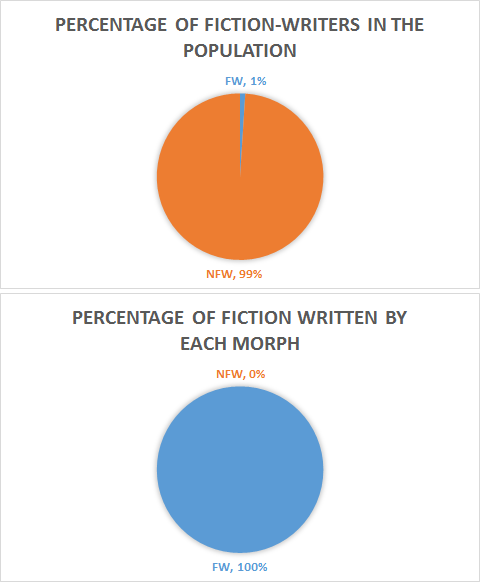 In an economic sense, it is fortunate that FWs are in the minority; otherwise they would have to pay NFWs to read their books, rather than the other way around.
In an economic sense, it is fortunate that FWs are in the minority; otherwise they would have to pay NFWs to read their books, rather than the other way around.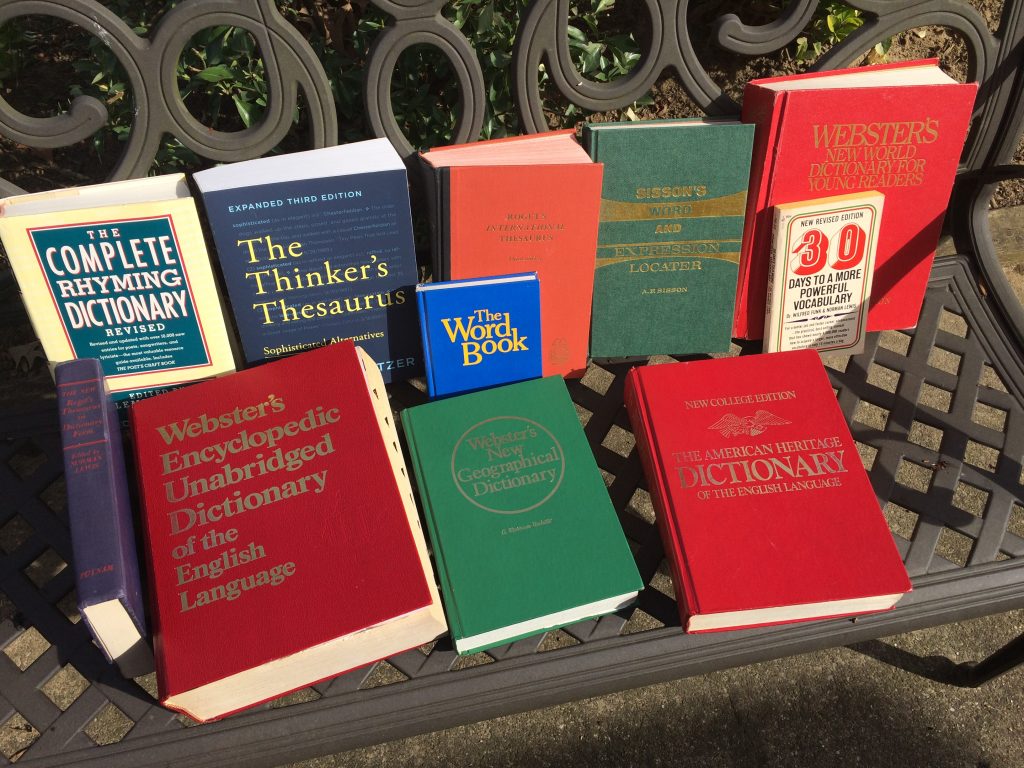 I’ll define Leximania as an intense love of—bordering on obsession with—words. It’s not necessary to have leximania to be a writer…but it helps. After all, to a writer, words are like a sculptor’s clay, a composer’s musical notes, a painter’s palette and brush. Words are the tiny bits of noting which, when joined, make literature. They’re the atoms of a writer’s universe, so it’s understandable if writers take an unusual level of interest in them.
I’ll define Leximania as an intense love of—bordering on obsession with—words. It’s not necessary to have leximania to be a writer…but it helps. After all, to a writer, words are like a sculptor’s clay, a composer’s musical notes, a painter’s palette and brush. Words are the tiny bits of noting which, when joined, make literature. They’re the atoms of a writer’s universe, so it’s understandable if writers take an unusual level of interest in them.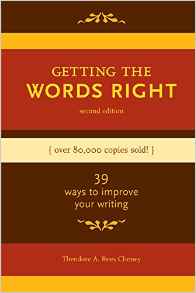
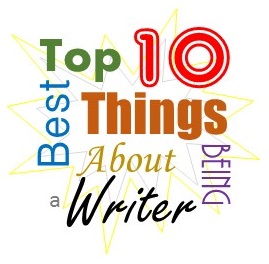 But why should you want to be a writer in the first place? That is a question never answered in any of my posts…until now.
But why should you want to be a writer in the first place? That is a question never answered in any of my posts…until now. You’ve been writing fiction as a hobby at home for some time now, and have sold a few stories, received payment as a published author. What if…
You’ve been writing fiction as a hobby at home for some time now, and have sold a few stories, received payment as a published author. What if…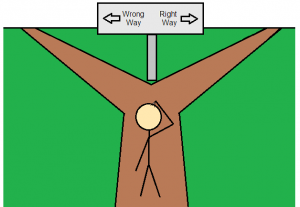 My list differs from hers, since it’s borne of my own experiences. Moreover, I’m sure there are plenty of unlisted items I’m still getting wrong, that hinder me from greater success.
My list differs from hers, since it’s borne of my own experiences. Moreover, I’m sure there are plenty of unlisted items I’m still getting wrong, that hinder me from greater success. Today, I’ll delve into major writer’s block (MajWB) and its cures. I define MajWB as the state of being unable to start writing a new work, a condition of long duration. It can last for years and can end a writer’s career.
Today, I’ll delve into major writer’s block (MajWB) and its cures. I define MajWB as the state of being unable to start writing a new work, a condition of long duration. It can last for years and can end a writer’s career.




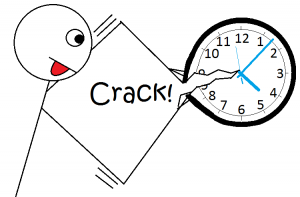 Sure, you say, but those great authors don’t do anything but write. Writing is their day job. That may be true for many of the great authors, but few of them started great. Most had day jobs until their books sold well.
Sure, you say, but those great authors don’t do anything but write. Writing is their day job. That may be true for many of the great authors, but few of them started great. Most had day jobs until their books sold well. Your mind is filled with raw feelings, and you have no room for anything else. You can’t be creative, not now. You can’t get in the mind of a character right now, can’t be bothered with rules of English, or with choosing the right words. Besides, your novel is a comedy, and you’re feeling the opposite of funny.
Your mind is filled with raw feelings, and you have no room for anything else. You can’t be creative, not now. You can’t get in the mind of a character right now, can’t be bothered with rules of English, or with choosing the right words. Besides, your novel is a comedy, and you’re feeling the opposite of funny.